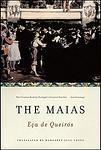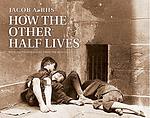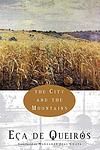The Greatest Portuguese, Danish Books of All Time
Click to learn how this list is calculated.
This list represents a comprehensive and trusted collection of the greatest books. Developed through a specialized algorithm, it brings together 300 'best of' book lists to form a definitive guide to the world's most acclaimed books. For those interested in how these books are chosen, additional details can be found on the rankings page.
Genres
Countries
Date Range
Reading Statistics
Click the button below to see how many of these books you've read!
Download
If you're interested in downloading this list as a CSV file for use in a spreadsheet application, you can easily do so by clicking the button below. Please note that to ensure a manageable file size and faster download, the CSV will include details for only the first 500 books.
Download-
1. Fairy Tales and Stories by Hans Christian Andersen
This collection of stories offers a mix of enchanting fairy tales and narratives, many of which have become universally recognized classics. The stories range from tales of whimsical creatures and magical realms to poignant narratives that explore themes of love, sacrifice, and the human condition. Some tales are light-hearted and humorous, while others are profound and thought-provoking, demonstrating the breadth and depth of the author's storytelling abilities.
-
2. Out of Africa by Isak Dinesen
The book is a memoir that recounts the author's experiences and observations living in Kenya, then British East Africa, from 1914 to 1931. It is a lyrical meditation on her life amongst the diverse cultures and wildlife of Africa. The author shares her trials and tribulations of running a coffee plantation, her deep respect for the people and land of Africa, and her intimate understanding of the subtle nuances of African culture and society.
-
3. The Book of Disquiet by Fernando Pessoa
"The Book of Disquiet" is a posthumously published collection of thoughts and musings of a solitary dreamer, who is a Lisbon-based bookkeeper. The book delves into the mind of a man who is discontented with his mundane life and finds solace in dreaming and writing. The narrative is a profound reflection on life, solitude, and the nature of humanity, filled with philosophical insights and poetic language. The protagonist's introspective journey and his struggles with existential despair make it a seminal work in the genre of literary modernism.
-
4. The Lusiad by Luís Vaz Camões
"The Lusiad" is an epic poem that chronicles the historic voyage of Vasco da Gama, who discovered a sea route from Portugal to India in 1497-1498. The narrative is filled with both historical events and fantastical elements, including sea monsters and divine intervention. The story celebrates Portugal's maritime exploration and its heroes, while also reflecting on the human condition and the nature of life, destiny, and the cosmos.
-
5. The Year of the Death of Ricardo Reis by José Saramago
The novel is a metaphysical narrative about a doctor named Ricardo Reis who returns to Lisbon, Portugal after learning about the death of his friend. He finds himself in a society on the brink of dictatorship, and as he navigates through his daily life, he encounters his deceased friend's ghost and a hotel maid with whom he begins a love affair. The book explores themes of identity, love, and the nature of reality, set against the backdrop of political turmoil.
-
6. Smilla's Sense of Snow: A Novel by Peter Høeg
The novel revolves around Smilla Jaspersen, a woman of Greenlandic-Inuit and Danish descent living in Copenhagen, who investigates the mysterious death of a small Inuit boy who falls from the roof of their apartment building. Despite the authorities ruling it as an accident, Smilla's understanding of the Arctic snow and ice, her intuition, and her relentless pursuit for truth lead her to uncover a much darker, dangerous conspiracy involving powerful corporations and government agencies.
-
7. The Maias: Episodes from Romantic Life by Eça de Queirós
"The Maias: Episodes from Romantic Life" is a compelling narrative set in Lisbon in the late 19th century that follows the lives of a wealthy Portuguese family, the Maias. The story centers around the romantic and professional life of Carlos Maia, but also includes a rich cast of secondary characters. The plot includes themes of love, betrayal, disillusionment, and tragedy, all set against the backdrop of a rapidly changing Portuguese society. The novel is also a critique of the decadence and stagnation of Portuguese society at the time.
-
8. Blindness by José Saramago
In this dystopian novel, an unexplained epidemic of "white blindness" sweeps through an unnamed city, causing chaos and panic. The government responds by quarantining the afflicted in an abandoned mental hospital, where conditions quickly deteriorate into violence and squalor. Amid the despair, one woman mysteriously retains her sight and guides a small band of the blind, including her husband, through the harrowing ordeal. The novel explores themes of loss, human nature, and the fragility of civilization.
-
9. Fear and Trembling by Soren Kierkegaard
"Fear and Trembling" is a philosophical work that explores the concept of faith, drawing upon the biblical story of Abraham and his willingness to sacrifice his son Isaac. The author uses this story to delve into the paradox of faith, arguing that true faith requires a willingness to make personal sacrifices that may seem absurd or irrational to others. The book challenges conventional notions of morality and ethics, suggesting that faith may sometimes require actions that go beyond the bounds of societal norms.
-
10. Baltasar and Blimunda by José Saramago
"Baltasar and Blimunda" is a historical love story set in 18th century Portugal. The narrative follows a maimed soldier, Baltasar, and a young clairvoyant woman, Blimunda, as they navigate the hardships of life during the Inquisition. Their love story is intertwined with the construction of the Convent of Mafra, a grandiose project initiated by the King. The novel explores themes of love, faith, human resilience, and the struggle against political and religious oppression.
-
11. The Crime of Father Amaro by Eça de Queirós
Set in 19th century Portugal, this novel follows the life of a young priest, Father Amaro, who is posted in a provincial parish. Despite his religious vows, he falls in love with a beautiful girl, Amelia, who is also the daughter of his landlady. Their forbidden love affair results in Amelia's pregnancy, leading to tragic consequences. The novel vividly portrays the corruption within the Catholic Church and the hypocrisy of the society.
-
12. Either Or by Soren Kierkegaard
"Either Or" is a philosophical work that explores the concept of existentialism through the lens of two contrasting life views: the aesthetic and the ethical. The aesthetic life is characterized by immediate pleasure and enjoyment, while the ethical life is defined by moral duty and responsibility. The book presents these two perspectives through the fictional letters of two characters, ultimately arguing for the superiority of the ethical life. However, it also suggests that a truly fulfilled life must find a balance between the two.
-
13. Niels Lyhne by Jens Peter Jacobson
The novel is a coming-of-age story that follows the intellectual and emotional development of its eponymous protagonist, a young Danish poet who struggles with the existential dilemmas of his time. Throughout his life, he grapples with the loss of religious faith, the search for meaning in a secular world, and the pursuit of artistic truth, all while experiencing the pangs of unrequited love and personal tragedy. The protagonist's journey is one of self-discovery and disillusionment, as he seeks to reconcile his idealistic visions with the harsh realities of life, ultimately embodying the spirit of a modern, introspective individual facing the existential uncertainties of the 19th century.
-
14. Seven Gothic Tales by Isak Dinesen
"Seven Gothic Tales" is a collection of short stories set in the 19th century, each with a unique blend of humor, horror, and romanticism. The tales, steeped in supernatural elements and psychological depth, explore themes of love, betrayal, and identity. The stories are populated by a variety of characters from different social classes and backgrounds, each facing their own moral dilemmas and existential crises. The author's vivid descriptions and atmospheric settings contribute to the gothic tone of the book.
-
15. Lucky Per by Henrik Pontoppidan
The novel follows the life of Per Sidenius, a young man from a devoutly religious family, who rebels against his provincial upbringing to seek fortune and success as an engineer in the bustling world of Copenhagen. Ambitious and driven, Per dreams of freeing Denmark from its reliance on foreign energy through his innovative engineering projects. Throughout his journey, he confronts the rigid class structures of Danish society, engages in tumultuous relationships, and struggles with his own internal conflicts and existential doubts. Despite his initial rapid ascent, Per ultimately faces the consequences of his relentless pursuit of material success, leading him to reevaluate the true meaning of fulfillment and happiness in life.
-
16. How the Other Half Lives by Jacob A. Riis
The book is a detailed examination of the living conditions of the poor in New York City in the late 19th century. It provides a vivid and often shocking account of life in the slums, tenements and sweatshops of the city, based on the author's own investigative journalism. The book had a significant impact on public opinion and led to changes in housing laws and social policy.
-
17. The Sickness Unto Death by Soren Kierkegaard
This philosophical work explores the concept of despair, which the author sees as a spiritual condition linked to the Christian concept of sin. The author delves into the human struggle to reconcile the self with the ideal self, a process he argues is only possible through a relationship with God. The book also discusses existential dread, self-awareness, and the nature of the human soul, offering a complex and thought-provoking examination of the human condition.
-
18. Anecdotes of Destiny by Isak Dinesen
"Anecdotes of Destiny" is a collection of five short stories, each with a unique exploration of human nature, destiny, and the complexities of life. The tales range from a woman who must choose between three suitors, to a young man who gambles his fortune on a single pearl, to a couple who make a pact with the devil. The stories are rich in symbolism and metaphoric language, offering profound insights into the human condition and the mysterious workings of fate.
-
19. The Long Journey by Johannes V. Jensen
This novel is a sweeping historical narrative that follows the adventurous life of a young Danish man, from his humble beginnings in a rural village to his travels across the globe. Set against the backdrop of the late 19th and early 20th centuries, it explores themes of evolution, human progress, and the quest for knowledge. Through vivid descriptions and a richly detailed plot, the protagonist's journey is a metaphor for the human experience, reflecting the struggles, discoveries, and aspirations of an era on the brink of modernity. The narrative is both a personal coming-of-age story and a broader commentary on the forces shaping human history.
-
20. The Gospel According To Jesus Christ by José Saramago
This novel offers a provocative and humanized retelling of the life of Jesus Christ, diverging from traditional biblical narratives. It presents a Jesus who is all too human, grappling with the complexities of life, love, and a sense of destiny. Through a blend of biblical lore and imaginative fiction, the story explores themes of divinity, free will, and morality, challenging readers to reconsider the foundations of faith and the nature of storytelling itself. The narrative delves into Jesus's relationships, his encounters with figures such as God and the Devil, and ultimately portrays a deeply philosophical and introspective version of a figure central to Western civilization.
-
21. The Land At The End Of The World by António Lobo Antunes
This novel is a poignant and harrowing account of the Angolan War of Independence from the perspective of a disillusioned Portuguese medic. Through a series of barroom confessions to an unnamed interlocutor, the narrator recounts his experiences of the brutal conflict, the horrors he witnessed, and the impact it had on his psyche. The narrative is a blend of vivid war memories and reflections on the post-war life, exploring themes of love, loss, and the haunting legacy of colonialism. The author's rich, poetic language and innovative storytelling techniques create a powerful, immersive experience, capturing the futility of war and the indelible scars it leaves on individuals and nations alike.
-
22. Fado Alexandrino by António Lobo Antunes
"Fado Alexandrino" is a complex narrative that follows the lives of four Portuguese men who meet at a dinner in Lisbon to commemorate their return from the colonial war in Mozambique ten years prior. Each man, representing different social classes, recounts his life before, during, and after the war, revealing their personal struggles and the impact of the war on their lives. The novel also reflects the political and social changes in Portugal from the dictatorship era to the revolution and its aftermath.
-
23. The City And The Mountains by Eça de Queirós
This novel juxtaposes the bustling, superficial life of the city with the serene, authentic existence in the countryside. Through the eyes of its protagonist, who transitions from a jaded urbanite to finding solace and purpose in the rural landscapes of his homeland, the narrative explores themes of materialism, the value of simplicity, and the quest for genuine happiness. The author masterfully contrasts the decadent Parisian society with the pastoral beauty and traditional values of Portugal, critiquing the hollow pursuits of the elite and celebrating the unpretentious, vibrant life connected to nature.
-
24. Signs Of Fire by Jorge de Sena
"Signs of Fire" is a historical novel set against the backdrop of the Spanish Civil War and the onset of World War II, exploring the coming-of-age of a young Portuguese man. The protagonist, caught between the expectations of his bourgeois family and his own political awakening, grapples with the tumultuous events of the era, his personal relationships, and his burgeoning intellectual and ideological convictions. As he navigates love, friendship, and the struggle for meaning in a world on the brink of chaos, the novel delves into themes of identity, resistance, and the impact of historical forces on individual lives.
-
25. The History of the Siege of Lisbon by José Saramago
This narrative revolves around a proofreader named Raimundo Silva, who, while working on a historical text about the Siege of Lisbon, decides to alter history by adding a single word to the text, turning the factual account into a fictional one. This act of rebellion leads him into a relationship with his boss, Maria Sara, and together they explore the consequences of questioning historical facts and narratives. The story also delves into the power of language and storytelling, and the blurred lines between history and fiction.
Reading Statistics
Click the button below to see how many of these books you've read!
Download
If you're interested in downloading this list as a CSV file for use in a spreadsheet application, you can easily do so by clicking the button below. Please note that to ensure a manageable file size and faster download, the CSV will include details for only the first 500 books.
Download























